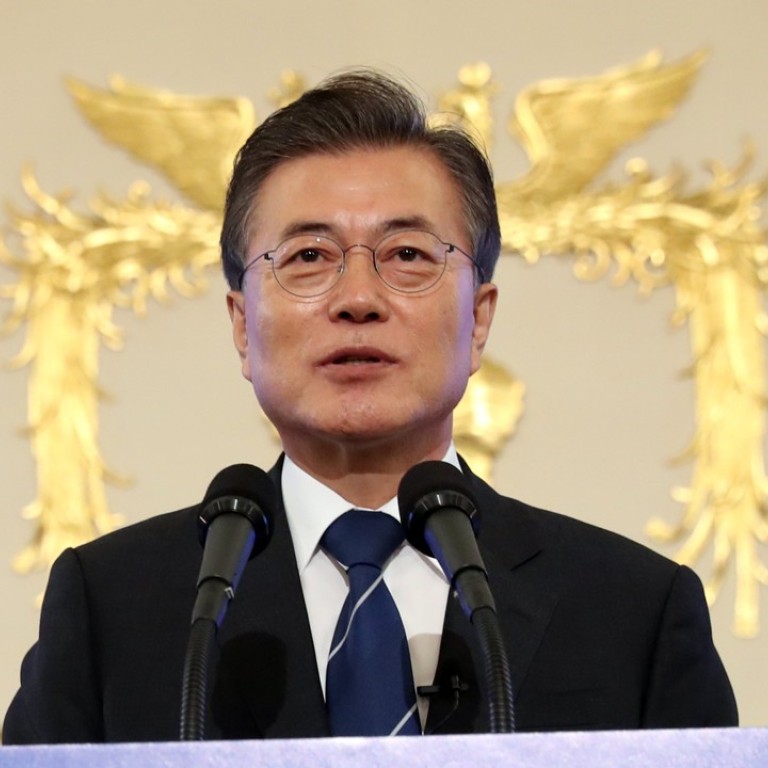
South Korea’s Moon vows no war with North after Trump warns US weapons ‘locked and loaded’
In an effort to jump-start diplomacy, South Korean President Moon Jae-in said he would consider sending a special envoy to North Korea for talks if it stops missile and nuclear tests
There will be no war on the Korean peninsula, South Korean President Moon Jae-in said Thursday, saying Seoul effectively had a veto over US military action in response to the North’s nuclear and missile programmes.
“All South Koreans have worked so hard together to rebuild the country from the ruins of the Korean war,” Moon told a press conference marking his first 100 days in office.
“I will prevent war at all cost,” he added.
“So I want all South Koreans to believe with confidence that there will be no war.”
Tensions have soared in recent months over Pyongyang’s weapons ambitions, which have seen it subjected to a seventh round of United Nations Security Council sanctions.
Last week the North threatened to send a salvo of missiles towards the US territory of Guam – although it appears to have backed off for now.
US President Donald Trump has promised “fire and fury” and said that Washington’s weapons were “locked and loaded”.
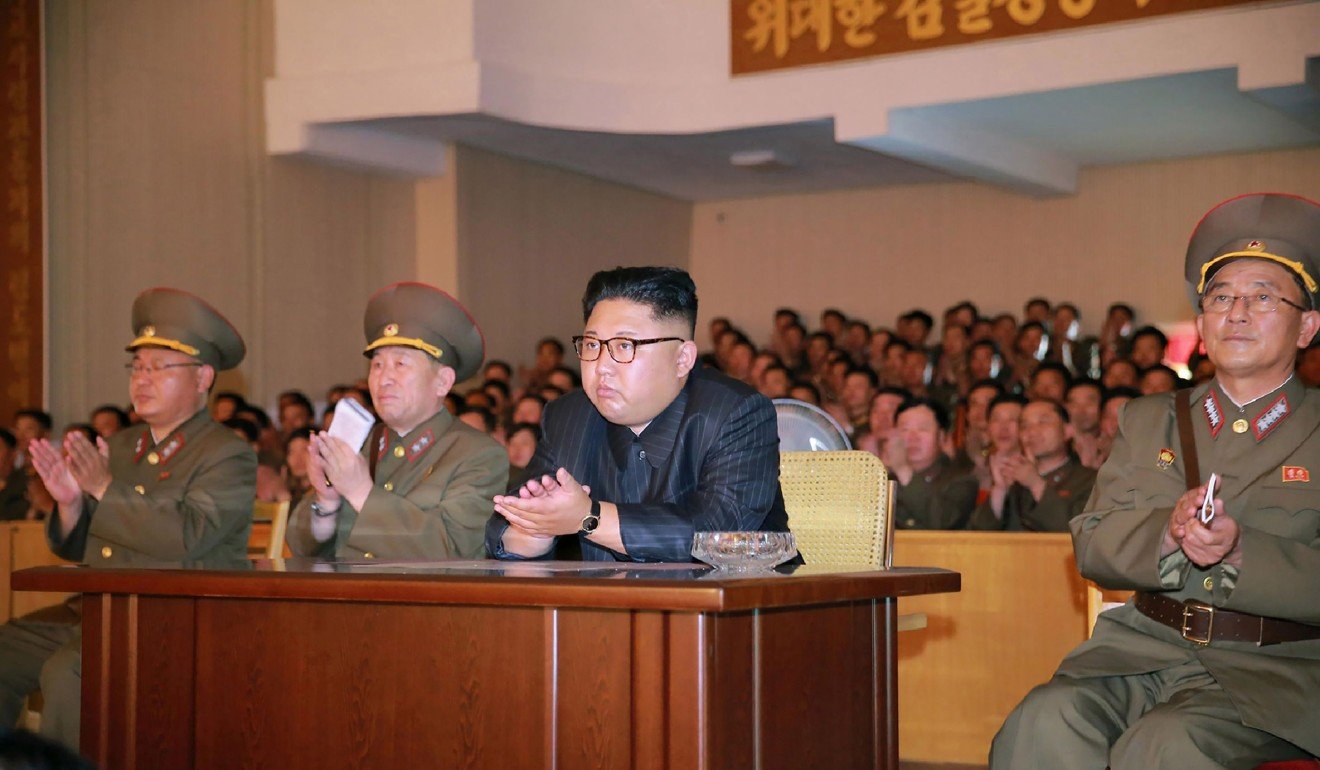
“The alternative would have been both catastrophic and unacceptable!” Trump wrote.
The intense rhetoric on both sides has raised fears of a miscalculation leading to catastrophic consequences – Pyongyang has vast artillery forces deployed within range of Seoul, where millions of people live.
On November 23, 2010, the North hammered the South Korean island of Yeonpyeong, firing off 170 shells and rockets that hit military and civilian targets and killed four South Koreans.
The North claimed the incident was triggered by South Korean artillery drills and the South’s firing of rounds into the North’s territorial waters. It occurred as tensions were unusually high – that same day, the US and South Korea began annual, large-scale military exercises.
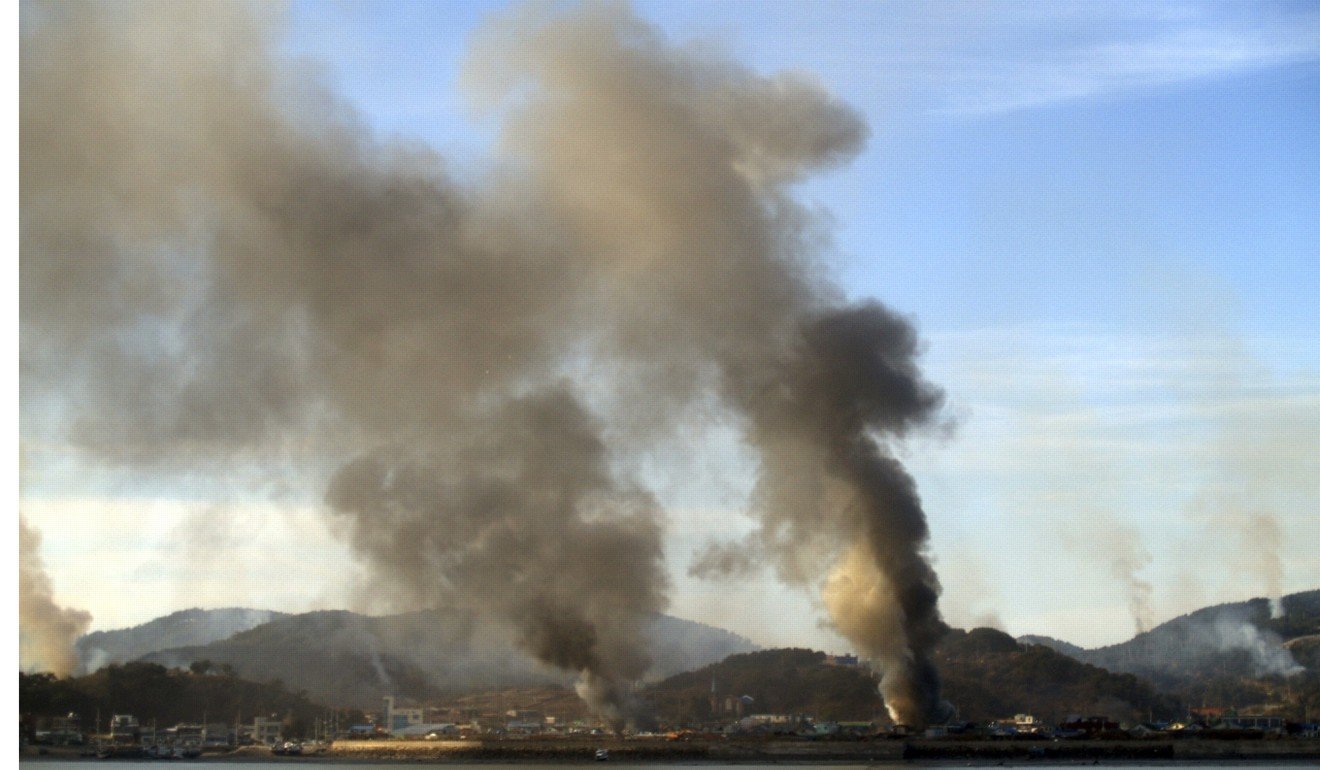
In his speech, Moon said Seoul effectively had a veto on military action by the US, its security ally and protector.
“No one can make a decision on military action on the Korean peninsula without our agreement,” he said.
“The US and President Trump also said, no matter what option they take about North Korea, all decisions will be made after consulting and getting agreement with the Republic of Korea.”
Moon, who visited Washington at the end of June, declined to criticise Trump’s rhetoric towards the North that has raised alarm among observers.
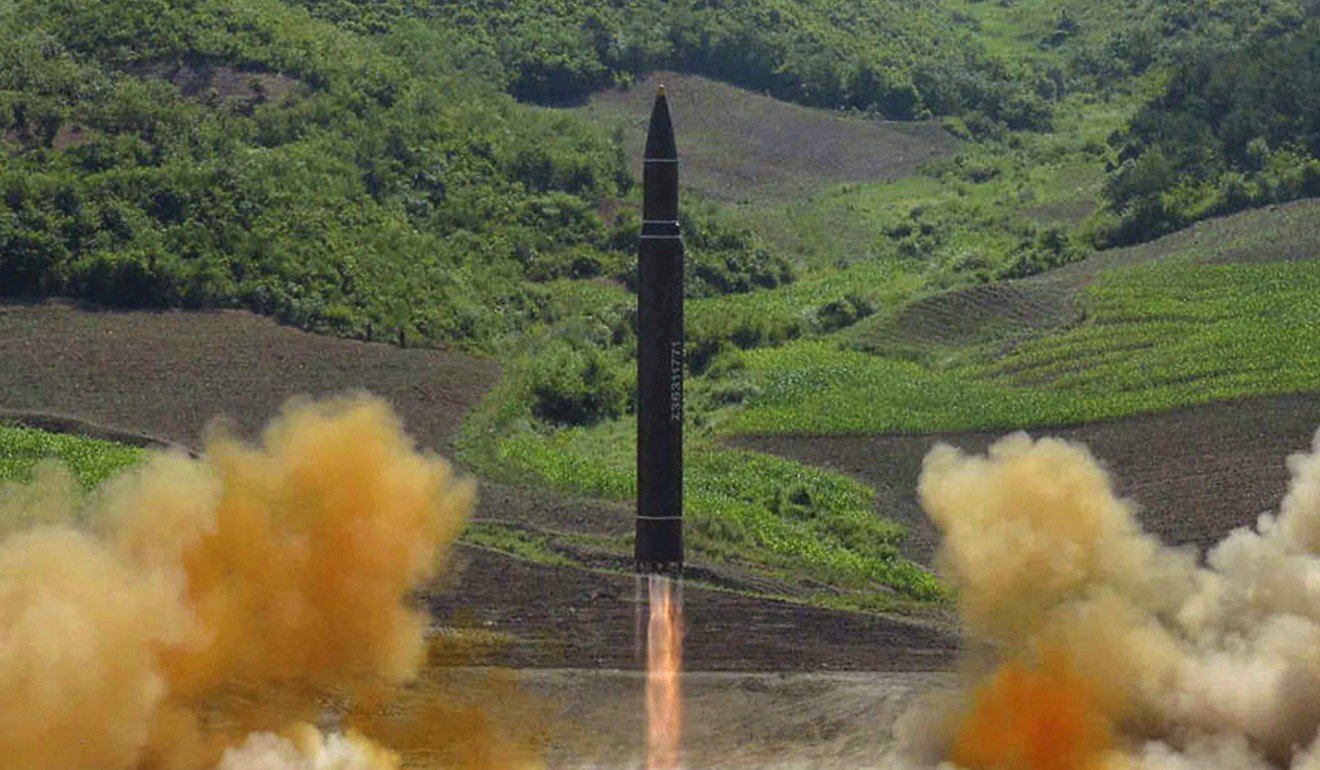
“US President Trump is trying to pressure North Korea by showing a firm resolution,” he said.
“I don’t think that he is trying to show a certain willingness to launch military action.”
In the past Moon, a left-leaning former human rights lawyer, has urged engagement with the North to bring it to the negotiating table, in addition to sanctions – an approach that raised concerns it could create divisions with Washington.
But since coming to power his gestures have been rebuffed by Pyongyang, and Moon played down the urgency of dialogue.
“I don’t think we must rush into it,” he said.
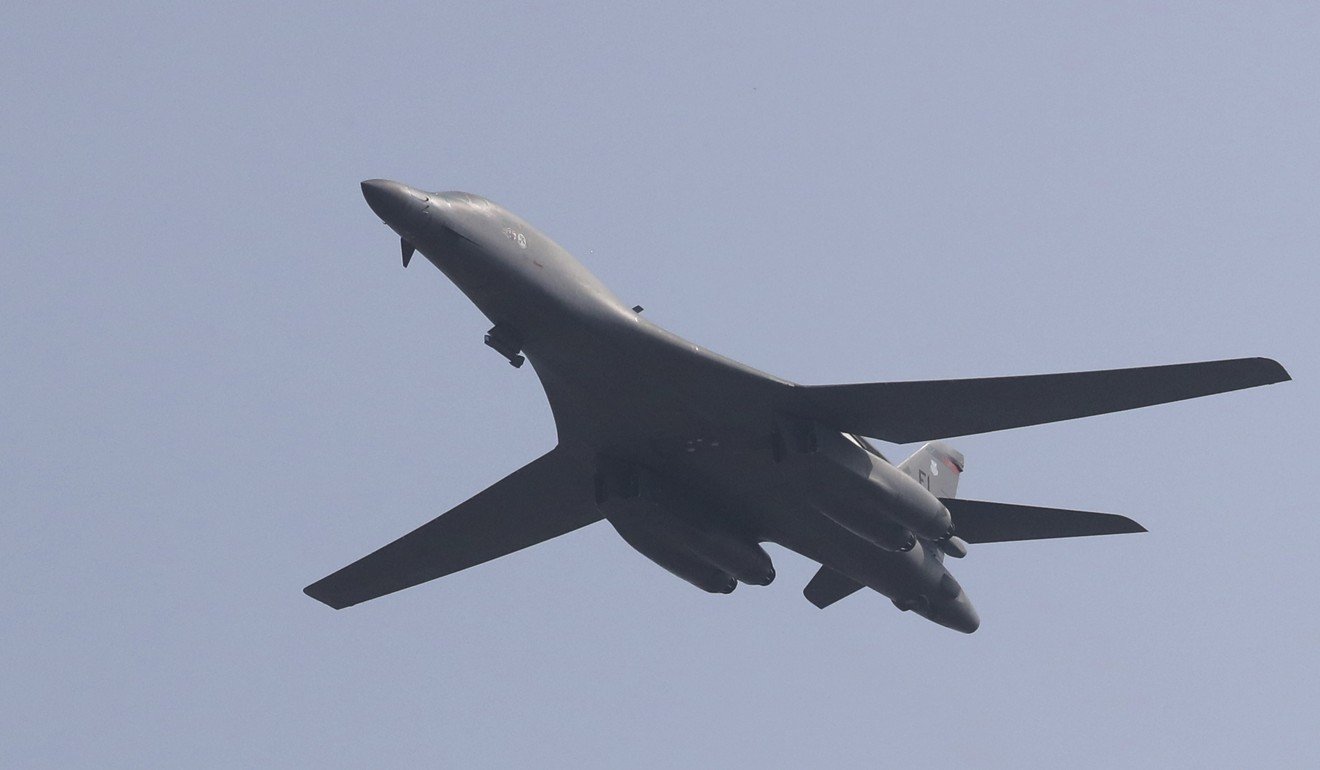
For talks to take place, he said, “there must be a guarantee that it will lead to a fruitful outcome.
“North Korea must at least end additional provocations to create the mood for dialogue.”
Only then could Seoul consider sending an envoy to the North, he added.
“The red line would be North Korea completing its ICBM and mounting it with a nuclear warhead and weaponising it,” he added.
“If North Korea launches another provocation, it will face even stronger sanctions and it will not be able to survive them. I would like to warn North Korea to end its dangerous gamble.”
Lobbing missiles toward Guam, a major US military hub in the Pacific, would be deeply provocative from the US perspective. A miscalculation on either side could lead to military confrontation.
Chinese Foreign Minister Wang Yi said in a phone conversation with his Russian counterpart, Sergey Lavrov, earlier this week that the two countries should work together to contain tensions and permit no one to “stir up an incident on their doorstep”, according to a statement posted on the Chinese foreign ministry’s website.
“The most important task at hand is for the US and North Korea to ‘hit the brakes’ on their mutual needling of each other with words and actions, to lower the temperature of the tense situation and prevent the emergence of an ‘August crisis’,” Wang was quoted as saying in the Tuesday conversation.
“A resolution of the North Korea nuclear issue by military force is completely unacceptable and the peninsula’s nuclear issue must be peacefully resolved by political and diplomatic methods,” Lavrov was quoted as saying.
China is North Korea’s main economic partner and political backer, although relations between Beijing and Pyongyang have deteriorated amid the North’s continuing defiance of China’s calls for restraint.
In recent months, China has joined with Russia in calling for the US to suspend annual military drills with South Korea in exchange for Pyongyang halting its missile and nuclear tests as a first step toward direct talks.
Additional reporting by Associated Press

.png?itok=arIb17P0)